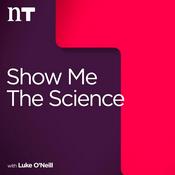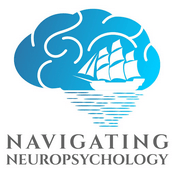322 episodes
- Research shows that reflecting on our shared humanity can increase self-compassion and life satisfaction while reducing feelings of isolation. In this practice, Dacher Keltner guides us to look beneath our differences and connect with the qualities that make us human together.
This guided exercise draws on a meditation by Sean Fargo, a mindfulness teacher and former Buddhist monk.
How To Do This Practice:
Settle your body: Sit comfortably and take a few slow, steady breaths. Let your shoulders drop, soften your jaw, and allow your body to feel supported by the ground or chair beneath you.
Notice what’s here: Briefly scan your body and emotions. Whatever you’re feeling—calm, tense, distracted, open—simply acknowledge it without trying to change it.
Bring someone to mind: Think of someone you don’t know well, feel distant from, or have mild tension with. Picture them as if they were in front of you.
Reflect on your similarities: Silently repeat phrases like: This person has a body and mind, just like me; this person has felt sadness, joy, and pain, just like me; this person wants to be safe, loved, and understood, just like me.
Gently extend kind intentions toward them: May you be well. May you be happy. May you be healthy. May you live with ease.
Return and reflect: Bring your attention back to your breath and body. Notice if anything has shifted—perhaps a softening, a little more space, or a sense of connection—and carry that awareness into your day.
This episode was supported by a grant from The John Templeton Foundation on Spreading Love Through the Media.
Related Happiness Break episodes:
A Meditation for When You Feel Uneasy: https://tinyurl.com/4x27ut3p
A Meditation to Connect With Your Roots: https://tinyurl.com/ycy9xazc
A Mindful Breath Meditation, With Dacher Keltner: https://tinyurl.com/mr9d22kr
Related The Science of Happiness episodes:
Why Compassion Requires Vulnerability: https://tinyurl.com/yxw4uhpf
How to Feel More Hopeful: https://tinyurl.com/4tfwhbpb
How Holding Yourself Can Reduce Stress: https://tinyurl.com/2hvhkwe6
Follow us on Instagram: @ScienceOfHappinessPod
We’d love to hear about your experience with this practice! Share your thoughts at [email protected] or use the hashtag #happinesspod.
Find us on Apple Podcasts: https://tinyurl.com/2p9h5aap
Help us share Happiness Break! Leave a 5-star review and share this link: https://tinyurl.com/2p9h5aap
Transcription: https://tinyurl.com/4ju7rmtd - Guest host Geena Davis guides us through the research on love that stretches beyond romance and friendship, showing up in our bonds with objects, nature, grief, and the collective moments that connect us to something larger than ourselves.
Summary: In this final episode of our 3-part series on The Science of Love, researchers reveal how love expands our sense of self and strengthens our bond to humanity. We also explore why objects can feel meaningful, how love of nature can motivate care for the planet, he ways grief reshapes our capacity for connection, and our love of humanity.
Related The Science of Happiness episodes:
The Science of Love Series: https://bit.ly/TheScienceofLove
The Science of Love, with Geena Davis (Episode 1): https://tinyurl.com/bfave5wd
How 7 Days Can Transform Your Relationship: https://tinyurl.com/bdh2ezhr
Related Happiness Breaks:
Visualizing Your Best Self in Relationships: https://tinyurl.com/4797z2vf
A Guided Meditation on Embodied Love: https://tinyurl.com/3dmpfam6
A Meditation on Love and Interconnectedness: https://tinyurl.com/ye6baxv3
Today’s Guests:
AARON AHUVIA is the most widely published and cited academic expert on non-interpersonal love.
Learn more about Aaron Ahuvia here: https://thethingswelove.com/about-aaron/
JESSICA EISE is a social and environmental scientist and is an assistant professor in the Department of Environmental and Occupational Health with Indiana University School of Public Health-Bloomington.
Learn more about Jessica Eise here: https://jessicaeise.com/
YURIA CELIDWEN is an indigenous scholar of contemplative studies, and author of the new book, Flourishing Kin: Indigenous Foundations For Collective Well-Being.
Learn more about Yuria Celidwen here: https://www.yuriacelidwen.com/
MARY-FRANCES O'CONNOR is a psychologist and professor at the University of Arizona, where she directs the Grief, Loss, and Social Stress Lab.
Learn more about Mary-Frances O’connor here: https://maryfrancesoconnor.org/
SHIRA GABRIEL is a Professor of Psychology at SUNY, University at Buffalo.
Learn more about Shira Gabriel here: https://tinyurl.com/2vvav8xj
Message us or leave a comment on Instagram @scienceofhappinesspod. E-mail us at [email protected] or use the hashtag #happinesspod.
Help us share The Science of Happiness! Leave us a 5-star review on Apple Podcasts or share this link with someone who might like the show: https://tinyurl.com/2p9h5aap
Funding for this special was provided by the John Templeton Foundation, as part of the Greater Good Science Center's Spreading Love Through the Media initiative.
Transcription: https://tinyurl.com/22d5nuyr - Guest host Geena Davis helps us explore how the love we feel —for our partners, friends, family, even our four legged companions—shapes our brains, bodies, and lives.
Summary: On this episode of The Science of Love with Geena Davis, we delve into the many forms of love, and experts share research on how small daily actions, physical touch, and emotional attentiveness strengthen relationships, while evolutionary and neuroscience studies reveal why these bonds matter. We also explore practical strategies for cultivating deeper connections and understanding the biological and psychological roots of love.
Scroll down for a transcription of this episode.
Related The Science of Happiness episodes:
The Science of Love Series: https://bit.ly/TheScienceofLove
The Science of Love, with Geena Davis (Episode 1): https://tinyurl.com/bfave5wd
How 7 Days Can Transform Your Relationship: https://tinyurl.com/bdh2ezhr
Today’s Guests:
DANIEL LEVITIN is a neuroscientist, musician, and bestselling author of the books, Music as Medicine: How We Can Harness Its Therapeutic Power and I Heard There Was a Secret Chord: Music As Medicine.
Follow Daniel Levitin on IG: https://www.instagram.com/daniellevitinofficial
JOHN GOTTMAN is a psychologist and the co-founder of The Gottman Institute.
JULIE GOTTMAN is a clinical psychologist and co-founder of The Gottman Institute and President of The Gottman Institute and co-founder of Affective Software, Inc.
Learn more about John and Julie Gottman here: https://www.gottman.com/
JUSTIN GARCIA is an evolutionary biologist and international authority on the science of sex and relationships.
Learn more about Justin Garcia here: https://tinyurl.com/2c39cs6r
ANNA MACHIN is a British evolutionary anthropologist at the Department of Experimental Psychology at Oxford University, England and author of the book Why We Love: The Definitive Guide to Our Most Fundamental Need.
Learn more about Anna Machin here: https://annamachin.com/
MARISA G. FRANCO is a psychologist and professor at The University of Maryland and author of the book “Platonic: How The Science of Attachment Can Help You Make – and Keep – Friends.”
Learn more about Marisa G. Franco here: https://drmarisagfranco.com/
Message us or leave a comment on Instagram @scienceofhappinesspod. E-mail us at [email protected] or use the hashtag #happinesspod.
Help us share The Science of Happiness! Leave us a 5-star review on Apple Podcasts or share this link with someone who might like the show: https://tinyurl.com/2p9h5aap
Funding for this special was provided by the John Templeton Foundation, as part of the Greater Good Science Center's Spreading Love Through the Media initiative.
Transcription: https://tinyurl.com/4b52azja - In a culture that often reduces love to romance, Geena Davis helps us explore the science of love across the lifespan—revealing how our bonds with parents, friends, partners, and communities shape our health, happiness, and survival.
Summary: Love is commonly understood as a feeling, yet scientific research increasingly points to its role as a core biological drive. In this episode of The Science of Love, we explore how love is expressed through caregiving, friendship, romantic attachment, and shared experience, and how these connections leave measurable effects on the brain, body, and even the microbiome.
Scroll down for a transcription of this episode.
Related The Science of Happiness episodes:
The Science of Love Series: https://bit.ly/TheScienceofLove
36 Questions to Spark Love and Connection: https://tinyurl.com/ktcpz78u
How 7 Days Can Transform Your Relationship: https://tinyurl.com/bdh2ezhr
Today’s Guests:
ANN DRUYAN is an author, activist, and documentary producer.
Learn more about Ann Druyan’s work here: https://tinyurl.com/5n8crkev
DANIEL LEVITIN is a neuroscientist, musician, and bestselling author.
Follow Daniel Levitin on IG: https://www.instagram.com/daniellevitinofficial
JESSICA EISE is a social and environmental scientist and is an assistant professor in the Department of Environmental and Occupational Health with Indiana University School of Public Health-Bloomington.
Learn more about Jessica Eise here: https://jessicaeise.com/
ANNA MACHIN is an evolutionary anthropologist who studies the evolution of love.
Learn more about Anna Machin here: https://annamachin.com/
FRANCESCO BEGHINI is a computational biologist at Yale University.
Learn more about Francesco Beghini here: https://tinyurl.com/knm4du4m
ILANA BRITO is a biomedical engineering professor at Cornell University.
Learn more about Ilana Brito here: https://tinyurl.com/mtnhw3yd
CONSTANCE BAINBRIDGE is a Communication PhD student at UCLA.
Learn more about Constance Bainbridge here: http://constancebainbridge.com/
SANDRA LANGESLAG is a cognitive and biological psychologist who studies romantic love.
Learn more about Sandra Langeslag here: https://tinyurl.com/523wc9wx
Message us or leave a comment on Instagram @scienceofhappinesspod. E-mail us at [email protected] or use the hashtag #happinesspod.
Help us share The Science of Happiness! Leave us a 5-star review on Apple Podcasts or share this link with someone who might like the show: https://tinyurl.com/2p9h5aap
Funding for this special was provided by the John Templeton Foundation, as part of the Greater Good Science Center's Spreading Love Through the Media initiative.
Transcription: https://tinyurl.com/bfave5wd - Discover what happens to our well-being when we respond to suffering with compassion, collective action, and why choosing to care can help us hold on to our shared humanity.
Summary: In the face of widespread suffering, many of us struggle with how to respond without becoming overwhelmed or numb. Drawing on research and real-world experience, this episode of The Science of Happiness examines the psychological impact of bearing witness, acting in alignment with our values, and showing up for others—even when it’s hard. We look at how compassion, agency, and a sense of common humanity can both strengthen resilience and carry real emotional costs, and why people continue to act anyway.
Take our 5-minute survey https://tinyurl.com/happyhappysurvey. Thank you for helping us make the podcast even better!
How To Do This Practice:
Pause and name what’s happening: Take a moment to notice what you’re feeling as you witness suffering or injustice—anger, grief, numbness, confusion. Naming the emotion helps calm the stress response and keeps you from shutting down or looking away.
Reconnect with common humanity: Remind yourself: there are no “good people” and “bad people”—there are people.
Clarify your values on paper: Write down one to three values that matter most to you right now (for example: compassion, integrity, dignity, justice). Studies show that writing values down lowers stress and makes it more likely you’ll act in alignment with them.
Gently ask yourself: “What does a person like me—with these values—do in a situation like this?” Consider what access, safety, or influence you may have, and what constraints you face. Acting with integrity looks different for everyone, and this step helps you choose a response that is both values-aligned and realistic.
Choose a safe, doable action: Action doesn’t have to be loud or risky. It might be writing, speaking up in a meeting, supporting someone directly, or adding your voice to a collective effort. Even small actions strengthen agency and social connection.
Reflect and reconnect: After you act, check in with yourself. Notice any sense of alignment, relief, meaning, grief, or fear. Acting with integrity won’t erase pain, but it helps protect mental health and shapes who we become over time.
Scroll down for a transcription of this episode.
Today’s Guests:
DR. FEROZE SIDHWA is a trauma, and critical care surgeon in California. He has also worked as a physician in Haiti, Ukraine and Palestine.
Learn more about Dr. Feroze Sidhwa here: https://www.ferozesidhwa.org/
DR. AKIVA LEBOWITZ is a physician and critical care specialist.
Learn more about Dr. Akiva Lebowitz here: https://akivaforbrookline.com/
DR. SUNITA SAH is a social scientist, author, and psychologist.
Learn more about Dr. Sunita Sah here: https://www.sunitasah.com/
Tell us about your experience with this practice. Email us at [email protected] or follow on Instagram @HappinessPod.
Help us share The Science of Happiness! Leave us a 5-star review on Apple Podcasts and share this link with someone who might like the show: https://tinyurl.com/2p9h5aap
Transcription: https://tinyurl.com/48wz2vru
More Science podcasts
Trending Science podcasts
About The Science of Happiness
Learn research-tested strategies for a happier, more meaningful life, drawing on the science of compassion, gratitude, mindfulness, and awe. Hosted by award-winning psychologist Dacher Keltner. Co-produced by PRX and UC Berkeley's Greater Good Science Center. Follow us on Instagram @HappinessPod.
Podcast websiteListen to The Science of Happiness, Mooney Goes Wild and many other podcasts from around the world with the radio.net app

Get the free radio.net app
- Stations and podcasts to bookmark
- Stream via Wi-Fi or Bluetooth
- Supports Carplay & Android Auto
- Many other app features
Get the free radio.net app
- Stations and podcasts to bookmark
- Stream via Wi-Fi or Bluetooth
- Supports Carplay & Android Auto
- Many other app features


The Science of Happiness
Scan code,
download the app,
start listening.
download the app,
start listening.
































